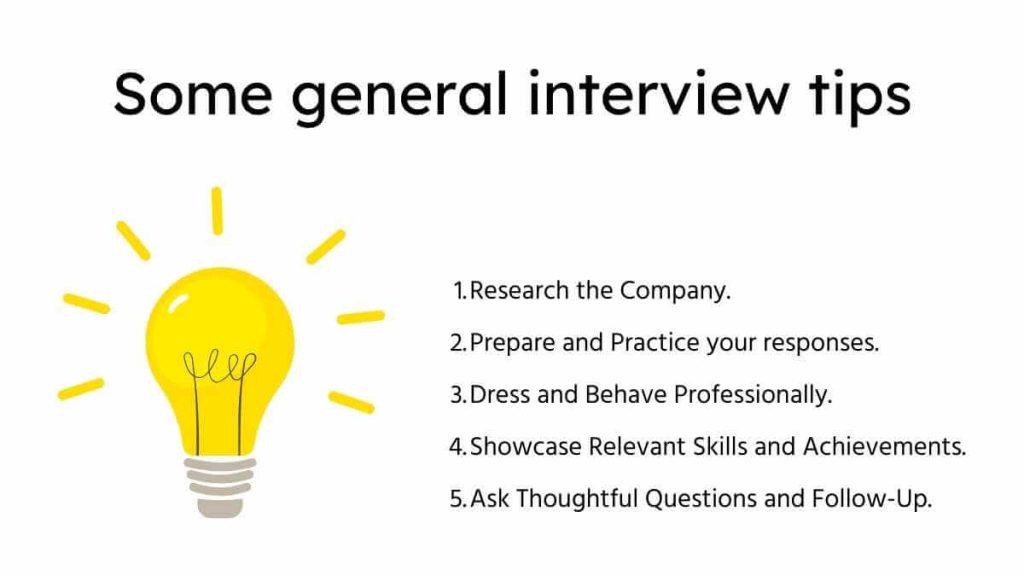Are you ready to rock your next interview and leave a lasting impression? If you’re feeling a bit nervous or uncertain, don’t fret! We’ve got your back. Today, we’re going to tackle some of the most common interview questions like a boss and help you put your best foot forward.
Let’s be real, interviews can be stressful. You’re trying to make a great first impression, showcase your skills and experience, and prove to the hiring manager that you’re the perfect fit for the job. It’s no wonder why so many people feel anxious leading up to an interview.
But here’s the thing: you don’t have to let those nerves get the best of you. With a little bit of preparation and some insider tips, you can walk into that interview room feeling confident, cool, and collected.
So, if you’re ready to crack an interview with absolute flying colours, you’ve come to the right place. We’re going to break down some of the most common interview questions that you’re likely to face and give you the tools you need to answer them like a pro. Whether you’re a seasoned job seeker or a newbie to the game, we’ve got something for everyone. Let’s get started!
Job interviews are a critical step in the hiring process, allowing employers to assess a candidate’s qualifications and fit for a particular role. It’s essential to be well-prepared for an interview, and one of the best ways to do that is by familiarizing yourself with the most common interview questions.
The most common interview questions serve as the initial icebreakers during an interview and set the tone for the conversation. In this article, we will explore the 13 most common interview questions and provide tips on how to answer them effectively.
The most common interview questions
Table of Contents
Can you tell us a little about yourself?
When an interviewer asks, “Can you tell us a little about yourself?” it’s important to provide a concise yet comprehensive answer that showcases your professional background and personal attributes.
Something like this: Of course. I am a highly motivated and dedicated professional with [X] years of experience in [your field/industry]. Throughout my career, I have consistently demonstrated a strong commitment to [mention relevant skills or qualities] and a passion for [mention your area of expertise or interest]. I have a proven track record of [mention a notable achievement or two], which I believe stems from my ability to [mention a relevant skill or trait, such as problem-solving, teamwork, or adaptability].
I hold a [mention your highest qualification or relevant certifications] from [name of the educational institution], where I honed my skills in [mention relevant skills or areas of expertise]. In my previous role at [previous company], I was responsible for [briefly describe your key responsibilities and achievements]. I thrive in [mention the type of work environment you excel in] and have a genuine passion for [mention your industry or field of interest].
In my free time, I enjoy [mention a few personal hobbies or interests] and find that they help me maintain a healthy work-life balance. I am excited about the opportunity to bring my expertise and enthusiasm to [current company’s name], and I am confident that my skills align well with the requirements of the [mention the specific job title] role.
This response provides a snapshot of your professional background, key skills, and personal interests, giving the interviewer a well-rounded understanding of who you are. It also allows you to segue into more specific aspects of your experience and qualifications as the interview progresses.
Why do you want to work for this company?
Before stepping into any job interview, it’s essential to do your homework and research the company. When asked, “Why do you want to work for this company?” it’s an opportunity to showcase your genuine interest and understanding of the organization. Here’s how to respond:
Research the Company: Begin your answer by demonstrating that you’ve thoroughly researched the company. Mention specific aspects that appeal to you, such as its mission, values, and recent accomplishments. Highlight the following:
- Company Culture: Emphasize how the company’s culture aligns with your personal values and work style. If the company values collaboration, innovation, or a strong commitment to community involvement, talk about how these aspects resonate with you.
- Company’s Impact: Discuss the company’s impact on its industry, community, or the world. If they’re leaders in sustainability, technology, or another field, express your admiration for their achievements.
- Career Development: Show that you see the company as a place for your professional growth. Mention how their commitment to employee development and career advancement aligns with your long-term goals.
- Recent Achievements: Refer to any recent news or accomplishments of the company. Discuss how these achievements have impressed you and piqued your interest.
- Your Contribution: Explain how you can contribute to the company’s success based on your skills and experiences.
Something like this: “I’m excited about the opportunity to work at XYZ Company because of its remarkable commitment to sustainability, which aligns with my values. I was particularly impressed by your recent project to reduce carbon emissions in the industry, and I believe my background in sustainable practices and innovation can make a meaningful contribution to your team. Additionally, I appreciate the company’s dedication to professional development, and I see this as an ideal place for my long-term growth in the field.”
Why are you the best person for this position?
When answering this question, focus on highlighting your relevant skills, experiences, and qualities that make you an ideal fit for the position. Here’s how to craft a strong response:
Relevant Skills and Experience:
- Tailor your response: Customize your answer to the specific requirements of the job description. Highlight the skills and experiences that align with the role’s responsibilities.
- Provide examples: Use specific examples from your past experiences to demonstrate your competence in the required areas.
- Soft skills: Besides hard skills, emphasize soft skills like teamwork, communication, problem-solving, and adaptability, which are valuable in most positions.
- Unique qualities: Mention any unique qualities or achievements that set you apart from other candidates.
Something like this: “I believe I am the best fit for this position because of my strong background in project management. In my previous role at ABC Company, I successfully led a cross-functional team on a project with similar complexities to what this position entails. My ability to handle multiple tasks, communicate effectively with team members, and adapt to changing priorities will allow me to excel in this role. Additionally, my experience in utilizing cutting-edge project management software aligns perfectly with the tools used in this department.”
What are your strengths and weaknesses?
When discussing your strengths and weaknesses, it’s important to focus on those that are relevant to the position and to show that you’re actively working on self-improvement. Here’s how to address this question:
Strengths:
- Relevant strengths: Mention strengths that are directly related to the job. If the position requires strong analytical skills, attention to detail, or leadership abilities, highlight these qualities.
- Provide examples: Support your strengths with examples from your past experiences to show how they’ve benefited your previous employers.
Weaknesses:
- Acknowledge your weaknesses: It’s important to be honest about areas where you have room for improvement.
- Show self-awareness: Discuss how you’re actively working on addressing these weaknesses. This demonstrates your commitment to self-improvement.
Something like this: “One of my strengths is my attention to detail. In my previous role, I was responsible for quality control, and my meticulous approach significantly reduced errors in our reports. On the other hand, one of my weaknesses is that I’m sometimes too self-critical, which can slow down decision-making. However, I’ve been working on this by setting clear timelines and seeking input from colleagues to gain more confidence in my judgment.”
What’s a professional achievement you are most proud of?
When discussing your proudest professional achievement, choose an example that showcases your skills and abilities relevant to the position. Here’s how to approach this question:
Choose a Relevant Achievement:
- Select an achievement: Pick an accomplishment that’s directly related to the job or the skills required for it.
- Detail the context: Provide context by explaining the situation, your role, and the challenges you faced.
- Highlight your contributions: Emphasize how your actions and skills led to a successful outcome.
- Quantify results: Whenever possible, use specific metrics to showcase the impact of your achievement.
Something like this: “One of my proudest professional achievements was at my previous company, where I led a team that increased our client retention rate by 25% within a year. I initiated a comprehensive customer feedback analysis, identified pain points, and implemented changes in our customer service processes. This achievement not only boosted client satisfaction but also increased our revenue significantly.”
How do you handle stress and pressure?
When discussing how you handle stress and pressure, provide specific strategies that demonstrate your ability to manage challenging situations effectively. Here’s how to respond:
Effective Stress Management Strategies:
- Describe your approach: Explain the methods you use to stay calm and focused under pressure.
- Give examples: Share instances where you successfully managed high-stress situations in your previous roles.
- Highlight problem-solving: Emphasize your ability to find solutions and make decisions under pressure.
Something like this: “I thrive in high-pressure situations by breaking tasks into manageable steps and prioritizing effectively. In my previous role, we had a tight deadline on a critical project, and I delegated tasks based on team members’ strengths, ensuring everyone worked efficiently. This strategy allowed us to meet the deadline successfully. I also believe in maintaining a healthy work-life balance, which helps me recharge and stay resilient during demanding periods.”
Tell me about a time you failed at work and how you handled it.
When discussing a work-related failure, it’s crucial to focus on what you learned from the experience and how you used it to improve. Here’s how to address this question:
Handling a Work Failure:
- Acknowledge the failure: Admit the mistake or failure, taking responsibility for your actions.
- Discuss your response: Explain the actions you took to address the failure and prevent it from happening again.
- Share what you learned: Highlight the valuable lessons you gained from the experience and how you applied them in subsequent roles.
Something like this: “Early in my career, I missed an important deadline due to poor time management. I immediately took responsibility for my mistake, informed my supervisor, and requested an extension while assuring them that it wouldn’t happen again. I learned to prioritize tasks better, create detailed schedules, and set reminders to ensure deadlines were met. This experience was a turning point in my time management skills, and I’ve since become highly organized and detail-oriented.”
Why are you leaving your current job?
When explaining why you’re leaving your current or most recent position, it’s important to be honest while avoiding negative comments about your current or former employer. Here’s how to approach this question:
Honest and Professional Explanation:
- Focus on growth: Explain that you are seeking new challenges and opportunities for professional growth.
- Highlight alignment: Emphasize how the position you’re applying for aligns with your career goals and aspirations.
- Avoid negativity: Refrain from criticizing your current or previous employer, team, or workplace.
Something like this: “I’m leaving my current position because I’ve reached a point where I feel I’ve learned all I can in my current role and I’m seeking new challenges and opportunities for growth. I believe this new role aligns perfectly with my career goals, and I’m excited about the potential to contribute to a company that shares my values.”
Where do you see yourself in five years?
When discussing your career goals, it’s important to align them with the company’s goals and show that you’re invested in your long-term development within the organization. Here’s how to respond:
Align with Company Goals:
- Show ambition: Express your desire to continue advancing in your career and making a meaningful impact.
- Company involvement: Mention your interest in growing within the company and contributing to its success.
- Be realistic: While demonstrating ambition, also be realistic about what can be achieved in five years.
Something like this: “In five years, I see myself in a leadership role within this company. I’m committed to not only meeting but exceeding the goals and expectations of the position I’m applying for. I believe that by contributing to the company’s success, I can also advance in my career and take on more significant responsibilities.”
What are your salary expectations?
When asked about salary expectations, it’s crucial to research the salary range for the position and provide a reasonable range based on your qualifications and industry standards. Here’s how to respond:
Provide a Reasonable Range:
- Research salary data: Research salary data for similar roles in your industry and location to determine a fair range.
- Align with your experience: Consider your qualifications, experience, and skills when deciding on the range.
- Open to negotiation: Express your willingness to negotiate and be flexible.
Something like this: “Based on my research and my experience, I believe a salary in the range of $X to $Y would be reasonable for this position. However, I am open to discussing the specifics and am willing to consider a competitive compensation package that reflects my skills and the market conditions.”
Do you have any questions for me?
When given the opportunity to ask questions, it’s important to prepare thoughtful inquiries that demonstrate your genuine interest in the company and the position. Here’s how to approach this:
Ask Thoughtful Questions:
- Company culture: Inquire about the company’s culture, values, and work environment to ensure it’s a good fit for you.
- Team and projects: Ask about the team you’ll be working with, the projects you’ll be involved in, and the company’s current priorities.
- Professional development: Inquire about opportunities for growth, training, and advancement within the company.
Something like this: “I’m very interested in the team dynamics and the collaborative aspects of this role. Can you tell me more about the team I’d be working with and the types of projects they’re currently focused on? Additionally, how does the company support professional development and growth for its employees?”
What are the skills and experience you’d bring to the company?
When asked about the skills and experience you’d bring to the company, focus on what you can offer that directly aligns with the position’s requirements. Here’s how to respond:
Highlight Relevant Skills and Experience:
- Tailor your answer: Customize your response to match the specific qualifications and responsibilities of the job.
- Provide examples: Use specific examples from your past roles to demonstrate your skills and experiences.
- Show enthusiasm: Express your eagerness to contribute to the company’s success with your unique qualifications.
Something like this: “I bring a strong background in digital marketing with a track record of developing and executing successful online campaigns that have resulted in increased brand visibility and revenue. My experience in SEO, content strategy, and social media management aligns perfectly with the goals of this position. I’m excited about the opportunity to leverage my expertise to drive the company’s digital marketing efforts.”
How do you deal with difficult situations?
When discussing how you handle difficult situations, focus on specific strategies you use to navigate challenging circumstances professionally and effectively. Here’s how to respond:
Effective Strategies for Dealing with Difficult Situations:
- Conflict resolution: Discuss your ability to address conflicts with diplomacy and problem-solving.
- Adaptability: Highlight your capacity to stay composed and flexible in rapidly changing environments.
- Communication: Emphasize your skills in clear and respectful communication, even in tense situations.
Something like this: “In challenging situations, I believe in proactive communication and open dialogue to address issues. I maintain a calm and adaptable approach, which allows me to analyze the problem objectively and find solutions. I also value feedback and actively seek input from colleagues to ensure we collaboratively address the situation. This approach has proven effective in diffusing tension and finding resolution in difficult circumstances.”
Additional Tips To Ace Your Interview

But before you go on your little adventure, let’s touch on a few more tips to help you nail your interview.
- First and foremost, do your research. Make sure you know as much as you can about the company and the job you’re applying for. This not only shows that you’re genuinely interested in the position, but it also allows you to tailor your answers to the company’s specific needs and values.
- Next, come prepared with questions. Not only does this show that you’re curious and engaged, but it also gives you the opportunity to learn more about the company and the role. Make sure your questions are thoughtful and relevant, and avoid asking anything that could be easily found on the company’s website.
- Another important tip is to practice, practice, practice. Enlist the help of a friend or family member and do a mock interview. This will help you get comfortable with the types of questions you might be asked and give you a chance to practice your answers.
- And finally, make sure you dress appropriately for the interview. Dressing professionally not only shows that you take the interview seriously, but it also gives you a confidence boost.
So there you have it, our top tips for acing your interview. Remember, interviews can be nerve-wracking, but with the right preparation and mindset, you can answer even the toughest questions like a pro. Good luck!
In a Nutshell
Congratulations! You made it to the end. By now, you should be feeling more confident and ready to tackle any interview question that comes your way.
Remember, preparation is key! Don’t wait until the last minute to start practising. Start early and practice often. Get feedback from friends, family, or a career counsellor to fine-tune your answers.
One of the best things you can do is research the company and the job you’re applying for. This will give you a better understanding of the company culture and the type of candidate they’re looking for. Use this information to tailor your answers to fit the job and the company.
But don’t forget to be yourself! Yes, you want to showcase your skills and experience, but you also want to let your personality shine through. Employers are not just looking for someone who can do the job, but also someone who is a good fit for the team.
So, take a deep breath, relax, and go crush that interview! Remember, you got this! And if you need a little boost, come back and reread this article. We’re here to help you go from good to great.

13+ Yrs Experienced Career Counsellor & Skill Development Trainer | Educator | Digital & Content Strategist. Helping freshers and graduates make sound career choices through practical consultation. Guest faculty and Digital Marketing trainer working on building a skill development brand in Softspace Solutions. A passionate writer in core technical topics related to career growth.




